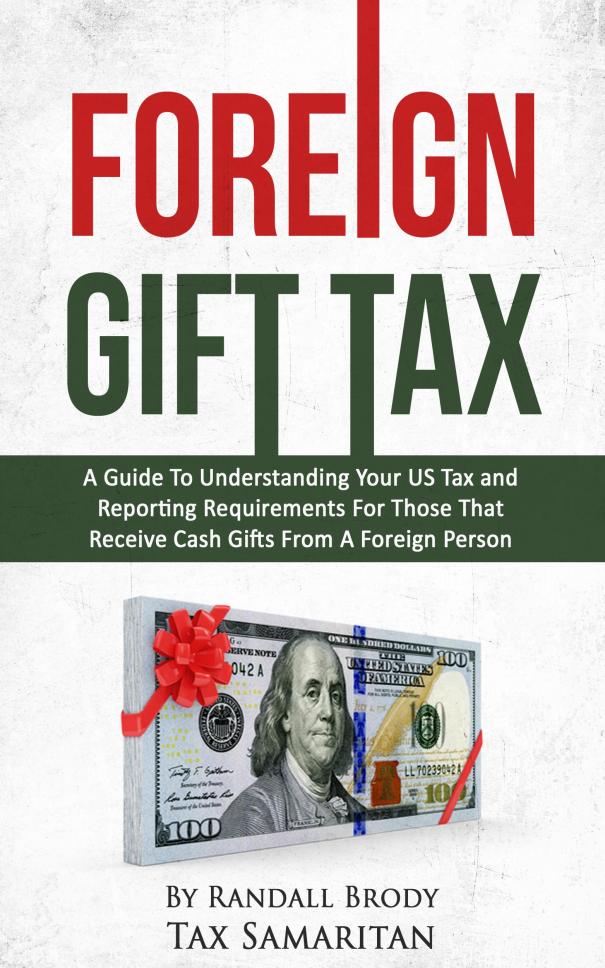Explore how businesses and individuals can report a foreign gift efficiently
Understanding the Kinds of Foreign Presents: How to Efficiently Report Them
Understanding international gifts is crucial for companies passing through complicated reporting requirements (report a foreign gift). These presents can differ significantly, coming under non-monetary and financial classifications. Each kind provides unique obstacles in assessment and conformity. Organizations must recognize the honest and legal ramifications entailed. Effective management and reporting demand clear standards and regular training. The inquiry remains: exactly how can companies guarantee they satisfy these commitments while maintaining transparency and liability?
Definition and Summary of International Gifts
Foreign presents are things or benefits gotten from foreign entities, which can include governments, people, or companies. These gifts might take numerous types, consisting of substantial things, solutions, or other types of support that hold worth. The relevance of international presents frequently hinges on their potential to influence relationships between companies, countries, or people. They can be a way of diplomacy, showing goodwill or cultivating cooperation. However, the acceptance of such gifts raises moral and lawful considerations, particularly pertaining to openness and prospective conflicts of interest. Receivers need to navigate intricate laws that regulate the reporting and acceptance of foreign presents, guaranteeing compliance with both worldwide and domestic laws. Recognizing the meaning and implications of international gifts is important for people and companies to preserve stability and responsibility in their dealings with foreign entities. This foundational knowledge establishes the stage for a deeper exploration of the various sorts of international presents and their reporting demands.
Kinds Of International Gifts: Monetary vs. Non-Monetary
Gifts from abroad can be classified into 2 primary kinds: financial and non-monetary. Monetary gifts include direct economic payments, such as cash money or checks, which can considerably affect the recipient's financial standing. These presents are frequently simple to worth and report, as they include clear financial amounts.
Non-monetary gifts, on the various other hand, include substantial items such as clothes, artwork, or souvenirs, as well as intangible offerings like experiences or services. While these gifts might not have a straight economic impact, they can hold substantial nostalgic or social value. Valuing non-monetary presents can be more complicated, as it frequently needs reviewing the thing's market worth or importance to the recipient. Comprehending these 2 classifications is crucial for accurate coverage, ensuring compliance with guidelines concerning foreign presents and keeping openness in economic ventures.
Ethical and legal Ramifications of Receiving Foreign Gifts
While the allure of receiving presents from abroad might seem innocuous, the legal and moral implications linked with such transactions can be significant. Receivers need to navigate complex guidelines that regulate the acceptance of international presents, as failure to do so might cause lawful repercussions, including fines or sanctions. Fairly, the acceptance of gifts from foreign entities can lead to perceptions of preference or problems of rate of interest, particularly for people ready of power or public trust. Such understandings can undermine the honesty of organizations and erode public self-confidence. In addition, the capacity for international influence elevates worries pertaining to nationwide security and the stability of decision-making procedures. Because of this, individuals have to very carefully consider not just the legitimacy of approving foreign gifts yet also the broader ramifications on their credibilities and the organizations they represent. Eventually, thoughtful deliberation is essential to keep both lawful compliance and ethical requirements.
Coverage Demands for Foreign Presents

Recognizing the reporting demands connected with receiving international presents is crucial for individuals in numerous markets, particularly those in government and civil service. These requirements are developed to promote transparency and stop conflicts of passion. Normally, receivers should report any foreign gifts surpassing a defined monetary limit, which varies by territory.
Documentation is important, as receivers have to provide details such as the worth, nature, and resource of the present, together with the date it was gotten. Lots of companies call for receivers to send their records within a marked duration, frequently within 30 days of receipt.

Failure to adhere to these reporting commitments can result in severe consequences, consisting of legal charges and damage to one's professional credibility. Therefore, comprehending the particular regulations applicable to one's position and territory is crucial for guaranteeing conformity and maintaining moral criteria in public solution.

Finest Practices for Handling International Presents in Organizations
To successfully manage foreign gifts within organizations, establishing clear policies and treatments is essential. Organizations should begin by specifying what makes up an international gift and identifying the pertinent reporting needs to ensure compliance with lawful obligations. Normal training sessions can enhance personnel awareness of these plans, promoting a society of openness and diligence.
Additionally, organizations need to carry out a central tracking system to record all foreign gifts obtained, consisting of information such as click site the source, value, and purpose. report a foreign gift. This system must help with normal evaluations and audits to analyze compliance with well established policies

Often Asked Inquiries
Can Foreign Gifts Influence Service Decisions or Relationships?
Foreign presents can especially influence business choices and connections, usually developing viewed obligations or prejudices. Such influences may affect arrangements, collaborations, and general corporate principles, potentially leading to conflicts of rate of interest or reputational risks.
What Are the Charges for Stopping Working to Report Foreign Present?
Failing More Bonuses to report international gifts can result in substantial fines, including penalties, corrective action, or legal effects. Noncompliance threatens transparency and might damage online reputations, highlighting the value of adhering to reporting laws.
Are There Particular Nations With Stricter Present Regulations?
Specific nations, like China and Saudi Arabia, impose stricter guidelines on presents, reflecting cultural standards and governmental oversight. These laws may influence foreign communications and necessitate cautious factor to consider by individuals involving in cross-border connections.
Exactly How Can Organizations Educate Worker Regarding Foreign Gift Policies?
Organizations can educate workers about international present policies through regular training sessions, complete manuals, and clear interaction networks. Engaging workshops and real-life circumstances aid reinforce understanding, guaranteeing conformity and understanding of prospective honest issues.
What Documents Is Essential for International Present Coverage?
Documentation for international present reporting generally includes a thorough summary of the present, its worth, the contributor's information, function of the gift, and any appropriate plans or laws controling the approval and reporting of such presents.
International gifts are items or benefits obtained from international entities, which can include federal governments, individuals, or organizations. Recipients have to navigate intricate laws that regulate the coverage and approval of international gifts, ensuring compliance with both residential and international regulations. Understanding the interpretation and ramifications of foreign gifts is vital for organizations and individuals to maintain honesty and responsibility in their dealings with foreign entities. Recipients have to navigate intricate laws that control the acceptance of international gifts, Visit This Link as failing to do so may result in legal effects, including permissions or penalties. Stopping working to report foreign presents can result in significant charges, consisting of penalties, corrective activity, or legal effects.